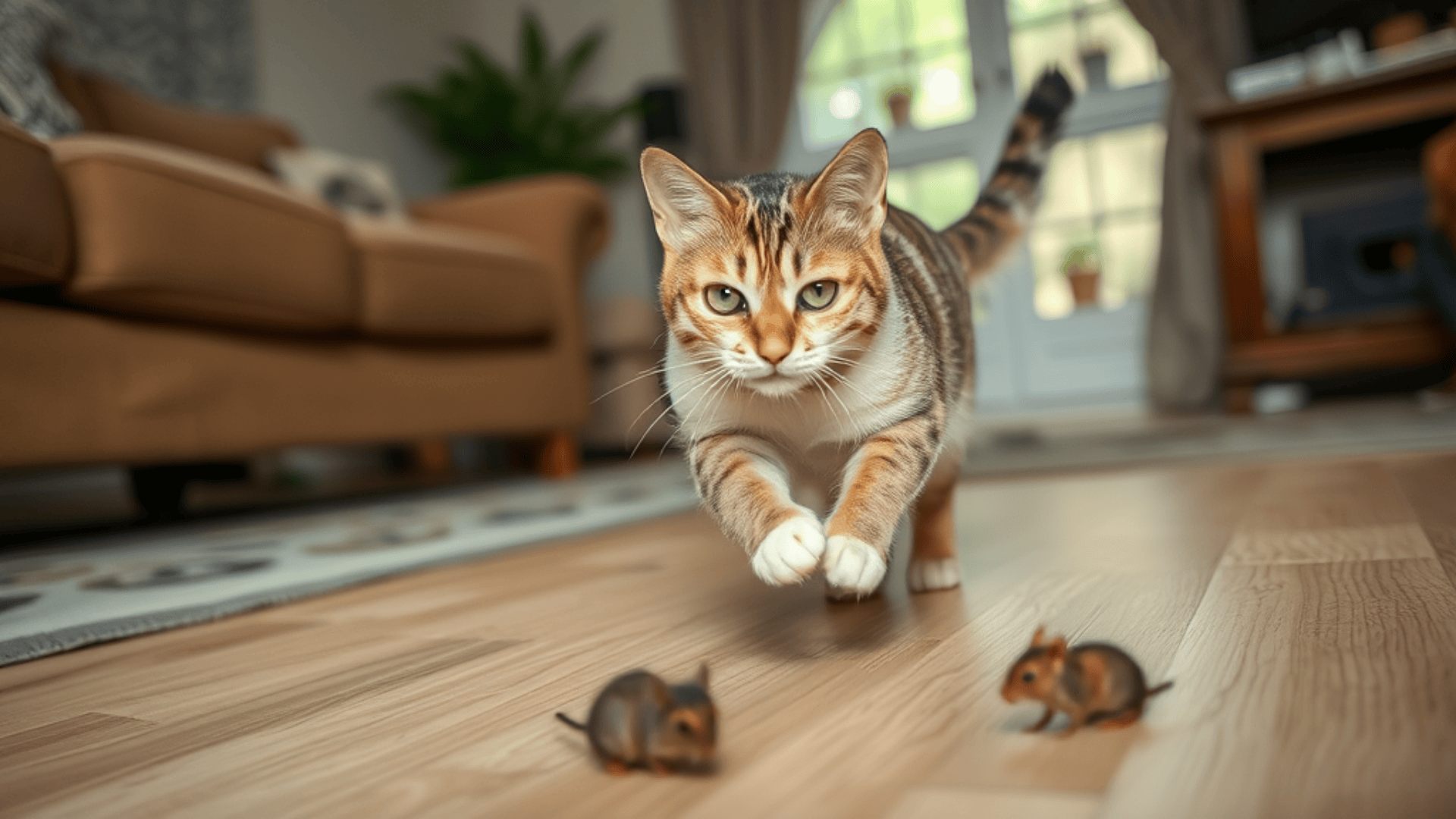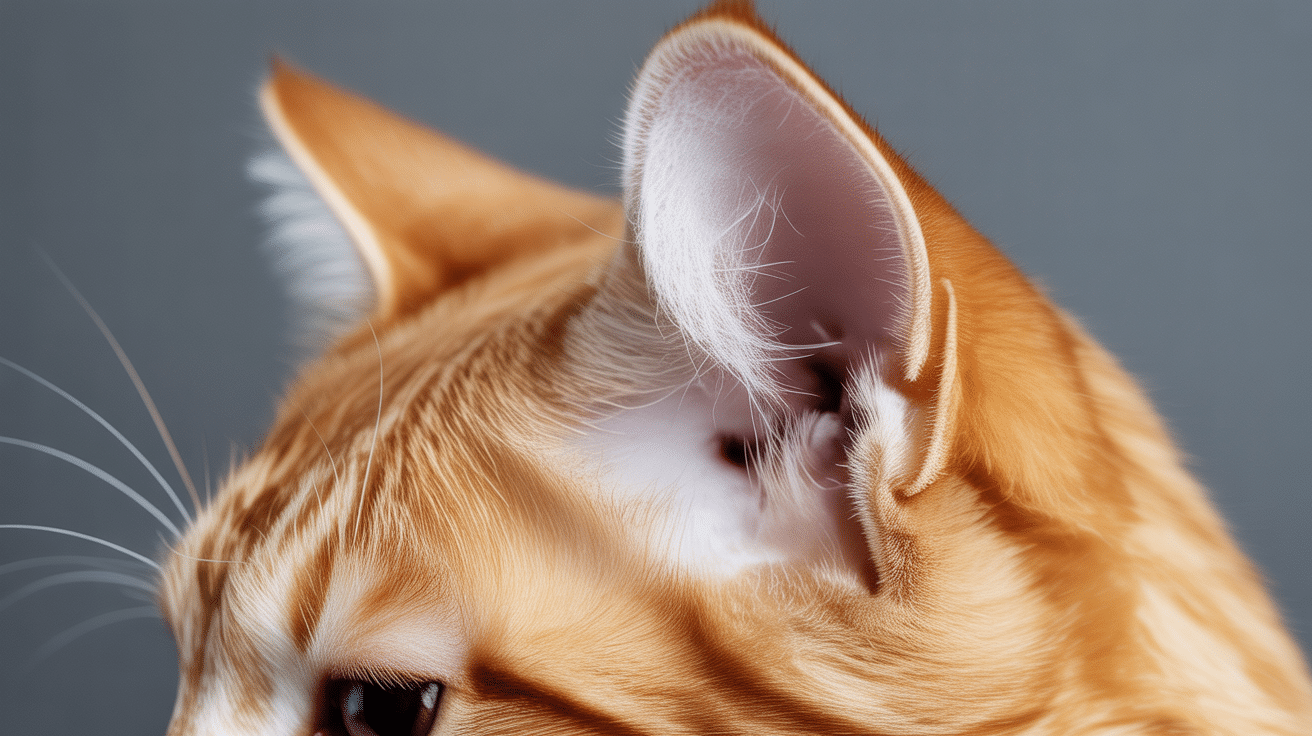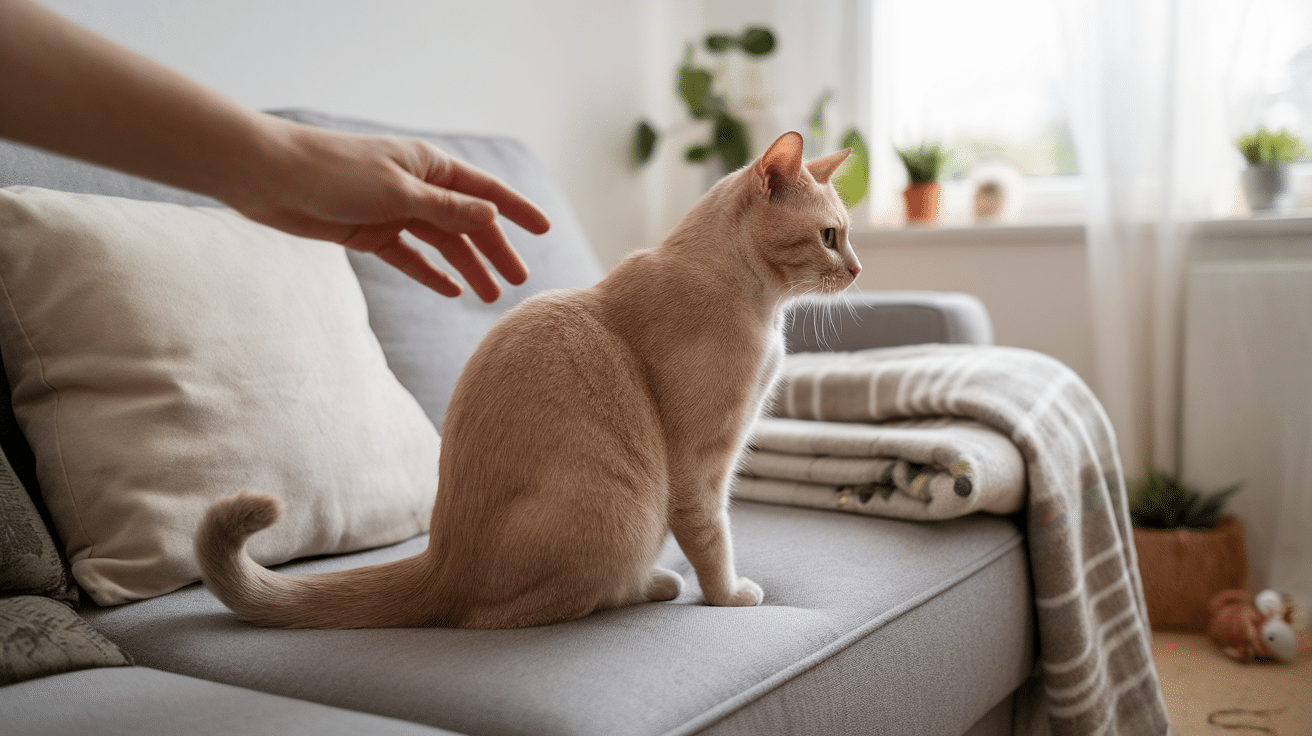Many people believe that cats are natural pest controllers and will keep mice away.
But is this true?
While cats can help reduce the number of mice, they are not a guaranteed solution.
Some cats may chase and catch mice, while others might not be interested at all.
Cat owners must understand the benefits and limits of relying on their pets for rodent control.
If you’ve been wondering whether your cat can handle keeping your home mouse-free, keep reading.
Learn how cats can help – and when it might be best to seek professional pest control.
How Cats Deter Mice
- Mice fear the smell of cats: Cats release a chemical in their saliva that causes a fear response in mice. This scent makes mice avoid areas where it’s present, helping to keep them away from your home.
- Cats see mice as a game: Cats have a natural hunting instinct and often see small animals like mice as prey. Their playful behavior encourages them to chase mice, even if they don’t always catch them. Having a cat around can make mice think twice before entering your home.
- Cats defend their territory: Cats are territorial animals. Whether or not they actively hunt, most cats chase mice away to protect their space. This instinct adds an extra layer of defense against rodents.
Why Cats May Not Solve Your Mouse Problem
Some cats aren’t inclined to hunt.
Domestic cats, especially those well-fed and sheltered indoors, may not need to chase mice.
Understanding your cat’s personality and behavior can help you decide if it will contribute to pest control.
Even if a cat catches a few mice, it’s unlikely to handle a full infestation.
Mice reproduce quickly—up to 60 offspring a year—making it difficult for one cat to keep the population under control.
This is why professional pest control is often necessary to eliminate the problem.
Mice can hide in places like basements, attics, or inside walls—areas cats may not be able to access. So, even if your cat is hunting in the open, mice can still thrive in these hidden spots.
Debunking Common Misconceptions
1. Cats Always Catch and Kill Mice
Many cats chase mice for fun, but that doesn’t mean they will kill them.
Some cats see mice as toys and play with them instead of killing them.
Certain cats fear mice and may not engage with them at all.
Even if a cat catches a mouse, it may not always finish the job. They could release it or lose interest after a while.
2. Cats Can Solve Your Rodent Problem on Their Own
While cats can help by scaring mice away, they are not a complete solution.
A cat’s presence may deter some mice, but not all. Mice are persistent creatures and may find ways to sneak past your cat.
Cats may be unable to catch all the mice, especially if there’s a large infestation.
Rodents can hide in places cats can’t reach, like inside walls or attics, making it difficult for a cat to address the problem entirely.
A full pest control plan is often needed for long-term effectiveness.
3. Cats Are Always Effective at Catching Mice
Not all cats have the same hunting instincts. Some may be more inclined to chase mice, while others may ignore them.
Cats kept indoors and well-fed are less likely to hunt, as they don’t feel the need to catch their food.
Even if a cat catches a few mice, they can reproduce quickly, and the problem can escalate.
Cats may catch one or two mice but likely won’t handle an entire infestation.
Some cats may only focus on easy-to-reach mice and miss others hiding in walls, basements, or attics.
The Health Risks of Relying on Cats for Rodent Control
Diseases Transmitted from Mice to Cats
Mice can carry diseases like Hantavirus and Lyme disease.
Cats can catch these diseases if they come into contact with infected rodents.
These diseases can be harmful to cats and may require treatment from a vet.
Fleas and Ticks
Mice often carry fleas and ticks.
Cats can pick up these parasites when they come into contact with rodents.
Fleas and ticks can cause discomfort, skin infections, and even more serious cat health issues.
Other Parasites
Mice may carry other parasites, such as mites or worms.
Cats can ingest or contract these parasites while hunting or playing with rodents.
Parasites can lead to health problems like weight loss, digestive issues, or more severe conditions.
Costly Vet Visits
Treating diseases, fleas, ticks, and other parasites can be expensive.
If your cat contracts something from a mouse, it could lead to costly vet bills.
Preventing these health risks may require regular veterinary checkups and treatments.
Strategies for Keeping Mice Away
Seal Cracks & Holes
One of the most effective ways to keep mice out of your home is to seal any cracks and holes in your walls, doors, and windows.
Mice can slip through surprisingly small gaps, so inspecting your home thoroughly is important.
Pay close attention to areas around pipes, vents, and electrical outlets. Use caulk, weatherstripping, or steel wool to block these entry points.
By creating a physical barrier, you can eliminate one of the main ways mice get into your home.
Remove Clutter
Mice love to nest in cluttered areas, so keeping your living spaces tidy is important.
Basements, attics, and garages are common places where mice may seek shelter, but piles of newspapers, boxes, or other materials can make the perfect nesting spot.
Organizing these areas and removing unnecessary items can discourage mice from setting up camp.
Keep Your Kitchen Clean
Mice are highly attracted to food, so keeping your kitchen clean is key to keeping them away.
Clean up spills and crumbs as soon as they happen, especially in hard-to-reach areas like under counters or behind appliances.
Store food in airtight containers to prevent mice from accessing it. Additionally, take out the trash regularly and keep it covered.
By ensuring your kitchen doesn’t offer easy food sources, you can make your home less appealing to mice.
Conclusion
While cats can help deter mice with their scent and hunting behavior, they are not a foolproof method for rodent control.
Cats may chase or scare off some mice, but they can’t eliminate an entire infestation. Mice reproduce quickly, and cats may miss hidden nests or areas out of reach.
For a more thorough and lasting solution, it is best to combine multiple strategies, such as sealing entry points, removing clutter, and maintaining a clean environment.
Professional pest control services can provide the expertise and tools needed to eliminate mice and prevent future infestations fully.
For more tips and advice on pest control, check out our other blogs on the website!






